John Kerry has the stature and ability to redefine America’s climate diplomacy, which the country sorely needs, but he will succeed only if his role is integrated into a broader strategy and doesn’t contradict or undermine it, argues Thomas Wright. This piece originally appeared in The Atlantic.
Competition with China will likely be the most difficult foreign-policy issue that President-elect Joe Biden will face. What he decides to lead with and the precise mix of areas in which he engages and confronts Beijing are critically important. This is why Biden’s choice of John Kerry as a special presidential envoy on climate change might create a problem for the incoming president on China policy.
Biden appointed Kerry, an old friend and trusted ally who came within a hair’s breadth of being elected president in 2004, and empowered him with an expansive mandate on an issue that touches virtually every other area in domestic and foreign policy. This appointment also gives him membership on the cabinet and the National Security Council, and authorization to use a military aircraft for his diplomacy. However, Biden does not yet appear to have defined the limits of Kerry’s role and explained how it will be integrated into the broader strategy. This has some of Biden’s other advisers worried.
According to three people familiar with Kerry’s thinking, Kerry believes that cooperation with China is the key to progress on climate change and that climate is by far the most important issue in the relationship between the United States and China. Kerry thinks the U.S. president should use his political capital to press Beijing on this subject. Yes, the United States should stand firm when it disagrees with Beijing, as he believes it did during his tenure as secretary of state, but everything else, including geopolitical competition with China, is of secondary importance to this overarching threat. As he put it in an interview with ProPublica before the election, “China is about to bring 21 gigawatts of coal fired power online. India is poised to do slightly less, but similarly huge amounts. That’s going to kill us. That’s going to kill the efforts to deal with climate.” For Kerry, a deal with China is the key.
Beijing is well aware of Kerry’s stance; he communicated it at the 2020 Munich Security Conference (well before Biden was the nominee). And China has already begun to lay the groundwork for a reset in its relationship with the U.S. Last week, in remarks to the Asia Society, Chinese Foreign Minister Wang Yi called for a return to cooperation and argued that the tensions between the two countries came down to American misunderstandings about China. This followed an op-ed calling for cooperative competition by Fu Ying, a Chinese diplomat who seeks to shape Western discourse about China but is personally distrusted by Biden’s Asia advisers for breaking an agreement on withdrawal from disputed areas in the South China Sea in 2012. Beijing is also on a charm offensive on climate change. In September, Chinese President Xi Jinping announced that China would be carbon neutral by 2060.
Some of Biden’s foreign-policy advisers believe that these seemingly benign overtures from Beijing basically call on the U.S. to accept the provocative actions by China that led to the increase in tensions in the first place. The rhetoric provides no reason to think that Beijing will modify its behavior—on the South China Sea, Taiwan, Hong Kong, Xinjiang, trade, or the development of new military capabilities that threaten American interests. All the talk of a reset is an attempt to influence the early internal debates within the Biden administration and to strengthen those individuals who want a return to cooperative engagement with China.
Kerry is indefatigable, even monomaniacal, in everything he does. The stories of his boundless energy and his confidence in his own ability to bend history are notorious among former officials who served with him in Barack Obama’s administration. As secretary of state, he did not easily take direction from the White House and often went with his gut instinct on what was needed to advance his own policy priorities—then a Middle East peace process that most of his colleagues believed was doomed to fail. For instance, he repeatedly linked Egypt policy to the peace process in ways that contradicted the Obama administration’s position on the importance of democracy and human rights in that country.
Kerry’s instinct could well be to hop on a plane on January 21 and fly to Beijing with a plea for the two countries to put climate at the centerpiece of their relationship. The Chinese will likely agree and in the subsequent months create the impression that a relaxation of tensions on other matters would be necessary if they are to deliver on their promises. Kerry, who sees all of these issues as linked, would then put himself at the heart of reconciling the conflicting goals and demand changes in U.S. policy to support his efforts.
The Chinese might welcome this negotiation, even though they might not intend for it to lead anywhere. Even if it does, it might create commitments that they can easily ignore. For Beijing, the advantage is that climate-change negotiations will dilute America’s ability to compete strategically, particularly in the Indo-Pacific region. I spoke with several Biden-Harris advisers, on condition of anonymity so they could speak freely, who expressed real concern over how this will play out. A former Obama administration official told me, “China’s diplomacy is a constant search for leverage, and Kerry will deliver a load of it in a wheelbarrow right to their front door every day.”
All of this would put the rest of Biden’s team in an impossible position. Tony Blinken, Jake Sullivan, and Lloyd Austin—the incoming secretary of state, national security adviser, and defense secretary, respectively—along with other administration principals, might find themselves making doctrinal statements on China policy that are then contradicted by what is happening in Kerry’s press conferences in Beijing. Kerry’s diplomacy might also greatly complicate the legislative agenda on climate. Biden already has a Herculean task in convincing the Senate to act on climate change, but he could potentially make progress where climate initiatives are framed as competitive with China. However, any progress will be lost if the frame is one of a grand bargain with Beijing.
In the development of a new strategy, two aspects of the relationship between climate change and competition with China are particularly important. The first concerns the role of climate in America’s China policy. A small minority of people believe, as Kerry does, that the U.S. should elevate climate in the overall relationship and be willing to make concessions on other issues to secure action by Beijing. The vast majority, including almost everyone on the Biden team except for Kerry, reject this view and believe that cooperation on climate should be compartmentalized and largely protected from the rest of the U.S.-Chinese relationship. This group then splits on how much competition they think is required, but they agree on the dangers of linkage—it could give Beijing an incentive to withhold cooperation on climate unless it receives concessions on other issues.
The second aspect is that the race to mitigate climate change will also become its own area of competition between the United States and China. This is brilliantly described from a European perspective by Janka Oertel, Jennifer Tollmann, and Byford Tsang in a new report for the European Council on Foreign Relations. They argue that “the hurdles to cooperation” with China on climate “are becoming higher” but that it “can be in Europe’s interest—if the EU sets clear red lines and benchmarks.” They warn that “decision-makers must not underestimate the highly competitive aspects of how China is changing its energy production and consumption” and that this “competitive dimension in climate diplomacy will become more dominant.”
For instance, Europe (and the U.S.) will be competing with China for a technological edge on innovations to produce a carbon-neutral economy and for access to raw materials (magnets, batteries, high-performance ceramics, and LEDs, among others). In some of these areas, the United States and Europe are at risk of dependence on China, so the answer lies in ensuring that the free world is more self-reliant when it comes to the decades-long effort to develop clean technology.
Biden needs to make clear as early as possible that he supports the notion that cooperation on climate change must be separated from the rest of the relationship so progress can continue regardless of other differences between the United States and China. If he does not give this guidance, it will allow Kerry to assume that he has permission to pursue his own path. Biden should then lay down crystal-clear guidelines for how his administration will engage directly with China and what subjects Kerry will be permitted to discuss with Beijing. Blinken and Sullivan should talk about the competitive aspects of climate policy to ensure that this issue is not neglected. Most importantly, Biden needs a control mechanism, such as giving Chief of Staff Ron Klain authority to enforce these guidelines.
The White House also needs an empowered senior official in the White House with the authority and ability to define U.S. strategy toward Asia. Described as an “Asia czar,” this position could easily fit within the existing National Security Council structure. This is important because Austin does not have a natural background on Asia and maritime issues. This official will likely not have Kerry’s stature and resources, so it will not be a solution to the problem in and of itself. But it will help.
Kerry’s first stop should not be Beijing. He should go to the European Union and listen to what Europeans have learned about the difficulties of engaging China on climate and how it is becoming a zone of competition. He should negotiate with the EU and the U.K. a common agenda for COP26, the major climate-change summit that will take place in London in November 2021. The allies can then go to China together later in the spring and negotiate the agenda from a position of unified strength.
These steps will ultimately help Kerry and help him focus his energies more effectively. He has the stature and ability to redefine America’s climate diplomacy, which the country sorely needs, but he will succeed only if his role is integrated into a broader strategy and doesn’t contradict or undermine it. Otherwise, the allure of a grand bargain with China will be a siren song that will only result in these valiant efforts ending in ruin.

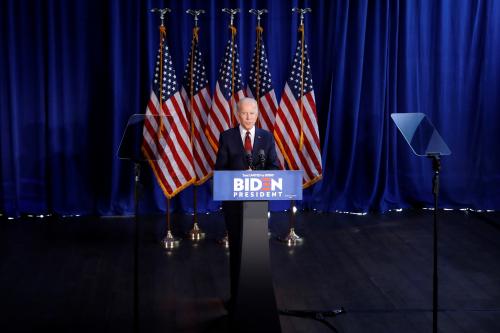
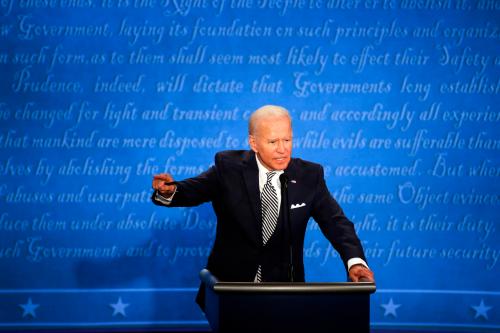
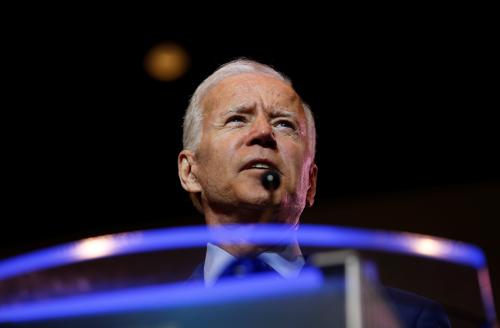

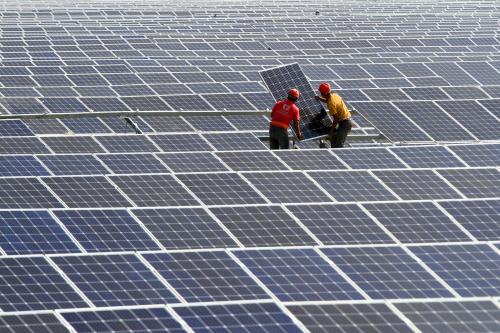
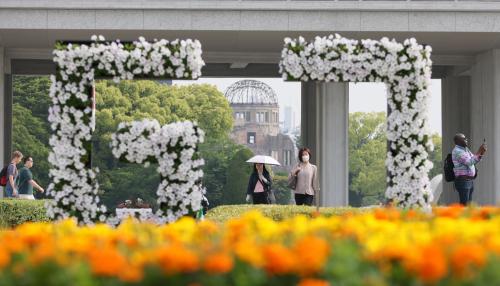
Commentary
The risk of John Kerry following his own China policy
December 23, 2020